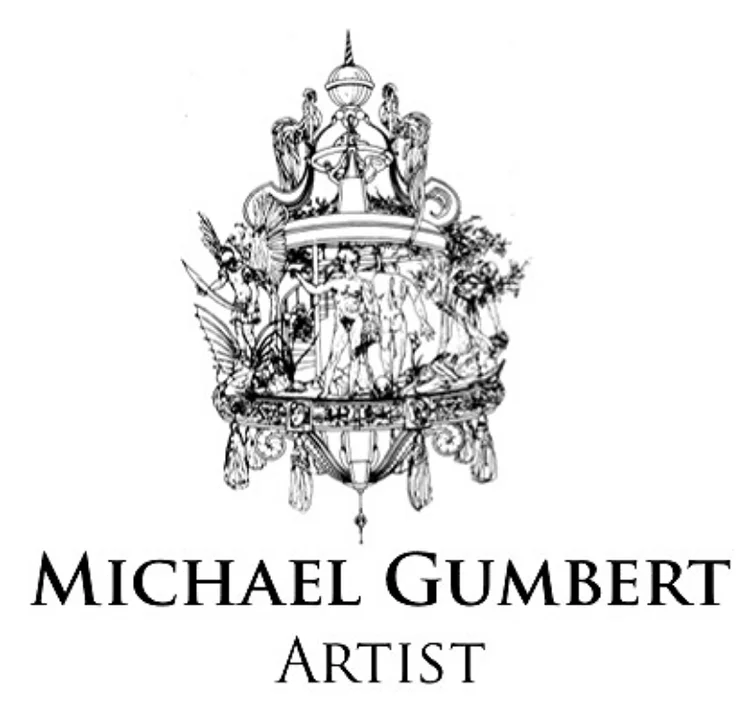Michael A.F. Gumbert
Known for his hyper-realistic style, Michael Gumbert was awarded the Art Master’s Artist of the Year Award in 1996 from the American Artist Magazine. His artworks have been featured in nearly every art magazine in America. Born in Philadelphia, he was considered gifted and began taking college art courses at the tender age of thirteen. Michael traveled an hour on the train into Philadelphia, just so that he could attend classes at the Philadelphia College of Art and Design.
Michael was then awarded a full scholarship to the Art Institute of Chicago. While there, he was greatly influenced by Chuck Close and Phillip Pearlstein. Photo realism was becoming a counter shift to the abstract expressionist movement, which was very prevalent at the time. For the artist Michael Gumbert, being able to create paintings which reflected the world around him was a challenge and required a different skill, something other than putting large swatches of color on a canvas. Concept was given a greater emphasis over technical ability in almost all of the universities and art colleges in the day, as it is to this day.
Michael felt that there was more to art than just controversial subject matter and strange conceptual methods. He wanted to learn how the Old Masters painted and to learn the actual techniques they used to create their works. So he entered a Master’s competition as an undergraduate and won. Michael was able to use this as a way to enroll in The University of Art in Perugia, Italy where Perugino once taught Raphael.
At the University of Art in Perugia, Michael was able to study the classical techniques of the old masters. During a break in class, Michael painted the portraits of two fellow students simultaneously. One was from India, which he painted left-handed, and the other from Ireland, which he painted right-handed. Since childhood Michael trained himself to paint with both hands, should something happen to his dominant hand, making it impossible to paint. This proved necessary as Michael was struck by an automobile one month prior to leaving for Italy. He was in a coma for ten days, and sustained so many serious injuries, the doctors did not think he would survive, least of all, paint again. Michael was determined and against doctor’s recommendations boarded the plane to Italy. Michael painted left-handed primarily in the beginning, but slowly recovered the use of his dominant right hand. His painting instructor standing to the side watched these theatrics and was impressed. The instructor asked Michael if he would accompany him to Florence to help with a restoration project. Michael went and his artistic career changed forever.
While in Florence, Michael entered the world of art restoration, there on a table lay a painting which was in need of restoration. Michael was asked to reproduce a unique brushstroke. The painting instructor felt that perhaps Michael’s ability to paint left or right handed might give a different insight into the approach of making a close replica of the original brushstroke. After several days and many failed attempts, Michael went off to paint something other than the brushstroke. Upon arrival, Michael realized he had forgotten his brushes. On the ground all around were feathers and full wings from birds which had fallen prey to others. Michael picked up a wing to use as a brush and began painting in the background. In that moment he realized that the feathers in the wing gave a texture to the paint that very closely matched the brushstroke that for days had eluded them. Later, it was proven to have been created by a tail feather of a wild turkey and the painting was a Rembrandt original. Since that time, Michael has used feathers of all kinds, wings from many birds and just about anything he feels will make the mark he desires. Michael was given the opportunity to study under several painting instructors, learning many of the techniques of these great masters. Michael studied in Italy for two years.
Today, Michael creates paintings which appear like a photograph at first glance, but upon closer observation one sees the careful placement of the brushstrokes and textures. Your mind tells you it is a photograph and that it seems unbelievable, but yet it is clearly more than that. This is the reaction that photo-realists hope to elicit, in hyper-realism they hope to elicit a sense of being there.
His artworks have been exhibited in the Museum of Art in Perugia, The Vatican in Rome and in many galleries around the world.
Michael is married. He and his wife Katherine live in the Bay Area of California.
